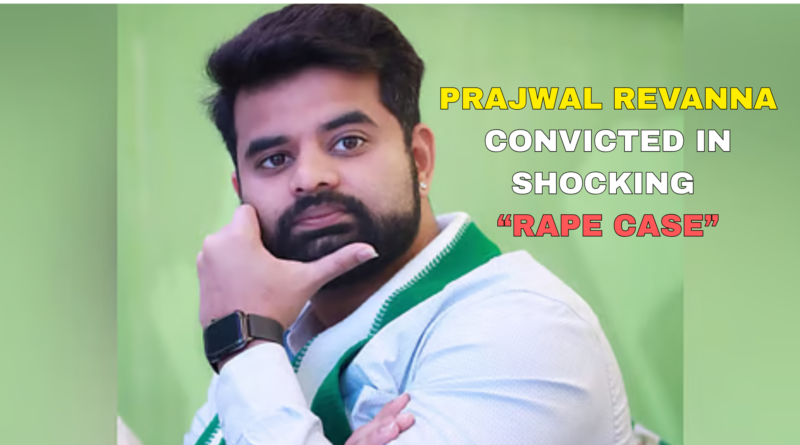PRAJWAL REVANNA CONVICTED IN RAPE CASE BY SPECIAL COURT IN BENGALURU
In a major development that has sent shockwaves through Karnataka’s political circles, Prajwal Revanna, the grandson of former Prime Minister H.D. Deve Gowda and a prominent JDS youth leader, has been convicted by a special court in Bengaluru on charges of rape and sexual harassment. The conviction comes after months of intense investigation and trial, culminating in a verdict that has significant political and legal ramifications.
The special court for MPs and MLAs, designated to handle cases involving public representatives, found Revanna guilty in a case involving the sexual assault of a woman who worked as a housemaid and was also reported to be his relative. The court observed that the evidence presented during the trial was sufficient to establish his guilt beyond reasonable doubt.
The case had been under scrutiny due to Revanna’s influential political lineage. As the son of H.D. Revanna and part of the powerful Gowda family, his arrest and subsequent trial drew both public attention and political criticism. Many questioned whether the law would take its full course, but the court has now delivered a strong message that no one is above the law.
Initially, the court had deferred the pronouncement of the verdict to July 30, citing the need for further legal clarity, despite the trial having concluded. However, on Friday, August 1, the judgment was finally read out, convicting Prajwal Revanna. The sentencing is scheduled for Saturday, where the court will decide the duration and nature of the punishment.
The complaint that led to this conviction was one among multiple allegations against Revanna. The survivor had alleged that she was sexually assaulted at his residence while working as domestic help. Her detailed testimony, combined with digital evidence and medical reports, played a critical role in the court’s decision.
The case gained national attention earlier this year when several women came forward accusing Revanna of sexual exploitation, including the circulation of explicit videos without consent. These cases triggered widespread protests and demands for his arrest, eventually leading to an Interpol lookout notice after Revanna fled the country in April.
Following international pressure and political backlash, Revanna returned to India and was taken into custody. The special investigation team (SIT) formed by the Karnataka government expedited the probe, collecting forensic and testimonial evidence to build a strong case against him. This conviction is the first legal outcome of those efforts.
The JDS leadership has remained tight-lipped following the court’s verdict. However, political analysts predict that this development could further erode the party’s image ahead of upcoming elections. Many have called on the party to take a clear stance on Revanna’s political future and to ensure internal accountability.
Women’s rights groups and civil society organizations have welcomed the conviction, terming it a “rare but powerful” example of the judiciary acting against influential individuals. Several activists highlighted how the case represents a turning point in addressing sexual crimes committed by those in positions of power.
Meanwhile, the legal team representing Revanna has stated that they plan to appeal the decision in a higher court. They argue that the verdict was based on “incomplete interpretation” of evidence and maintain that Revanna is being targeted due to his political connections. The appeal is expected to be filed after the sentencing.
As Karnataka awaits the final sentence, the case has sparked a broader discussion on the need for faster trials in cases involving elected officials and public figures. It also puts the spotlight on the importance of safeguarding victims’ rights and ensuring that justice is not delayed by political or procedural hurdles.




